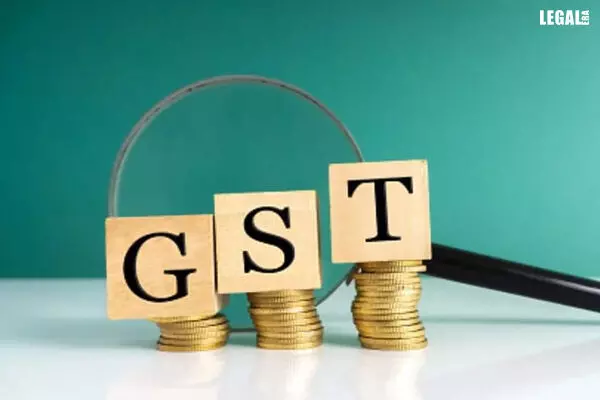- Home
- News
- Articles+
- Aerospace
- Artificial Intelligence
- Agriculture
- Alternate Dispute Resolution
- Arbitration & Mediation
- Banking and Finance
- Bankruptcy
- Book Review
- Bribery & Corruption
- Commercial Litigation
- Competition Law
- Conference Reports
- Consumer Products
- Contract
- Corporate Governance
- Corporate Law
- Covid-19
- Cryptocurrency
- Cybersecurity
- Data Protection
- Defence
- Digital Economy
- E-commerce
- Employment Law
- Energy and Natural Resources
- Entertainment and Sports Law
- Environmental Law
- Environmental, Social, and Governance
- Foreign Direct Investment
- Food and Beverage
- Gaming
- Health Care
- IBC Diaries
- In Focus
- Inclusion & Diversity
- Insurance Law
- Intellectual Property
- International Law
- IP & Tech Era
- Know the Law
- Labour Laws
- Law & Policy and Regulation
- Litigation
- Litigation Funding
- Manufacturing
- Mergers & Acquisitions
- NFTs
- Privacy
- Private Equity
- Project Finance
- Real Estate
- Risk and Compliance
- Student Corner
- Take On Board
- Tax
- Technology Media and Telecom
- Tributes
- Viewpoint
- Zoom In
- Law Firms
- In-House
- Rankings
- E-Magazine
- Legal Era TV
- Events
- Middle East
- Africa
- News
- Articles
- Aerospace
- Artificial Intelligence
- Agriculture
- Alternate Dispute Resolution
- Arbitration & Mediation
- Banking and Finance
- Bankruptcy
- Book Review
- Bribery & Corruption
- Commercial Litigation
- Competition Law
- Conference Reports
- Consumer Products
- Contract
- Corporate Governance
- Corporate Law
- Covid-19
- Cryptocurrency
- Cybersecurity
- Data Protection
- Defence
- Digital Economy
- E-commerce
- Employment Law
- Energy and Natural Resources
- Entertainment and Sports Law
- Environmental Law
- Environmental, Social, and Governance
- Foreign Direct Investment
- Food and Beverage
- Gaming
- Health Care
- IBC Diaries
- In Focus
- Inclusion & Diversity
- Insurance Law
- Intellectual Property
- International Law
- IP & Tech Era
- Know the Law
- Labour Laws
- Law & Policy and Regulation
- Litigation
- Litigation Funding
- Manufacturing
- Mergers & Acquisitions
- NFTs
- Privacy
- Private Equity
- Project Finance
- Real Estate
- Risk and Compliance
- Student Corner
- Take On Board
- Tax
- Technology Media and Telecom
- Tributes
- Viewpoint
- Zoom In
- Law Firms
- In-House
- Rankings
- E-Magazine
- Legal Era TV
- Events
- Middle East
- Africa
Allahabad High Court Quashes Penalty under UPGST Act: Truck's Slow Movement Due to Engine Fault, Not Extending E-Way Bill Deemed Technical Breach

Allahabad High Court Quashes Penalty under UPGST Act: Truck's Slow Movement Due to Engine Fault, Not Extending E-Way Bill Deemed Technical Breach
In a recent ruling, the Allahabad High Court has quashed a penalty imposed under Section 129(3) of the Uttar Pradesh Goods and Services Tax Act, 2017. The Court stated that the GPS tracking system indicated slow movement of the truck due to mechanical issues in the engine, and therefore, a penalty under Section 129 of the Goods and Services Tax Act, 2017, could not be imposed for not extending the time period in the e-way bill. The Court held that failure to extend the time period in such a case will be deemed as a technical breach.
During the interception of the petitioner's goods, it was noted that the e-way bill had expired four days prior. The petitioner's counsel argued that the driver had been forced to drive slowly and intermittently stop due to engine overheating. They relied on the truck's GPS data to demonstrate that it was following the original route.
The respondents argued that the failure to extend the e-way bill constituted a breach of rules, justifying the penalty.
The Court emphasized that the intent to evade tax, is crucial for the imposition of a penalty, as established in the cases of M/s Hindustan Herbal Cosmetics v. State of U.P. & Ors and M/s Falguni Steels v. State of U.P. & Ors . In the present case, there was no indication of any mens rea for tax evasion. The goods were accompanied by relevant documents, and the petitioner explained that the slow movement of the goods was due to a mechanical fault in the engine of the vehicle, supported by GPS tracking system data.
The Court highlighted that the breach committed by the petitioner regarding the non-extension of the e-way bill's time period was merely a technical breach and not sufficient grounds for the imposition of a penalty under Section 129(3) of the Act. Therefore, the Court concluded that the findings of the authorities regarding the intention to evade tax were not supported by the factual matrix of the case. Consequently, the Court quashed and set aside the impugned orders.
Further, the Court directed the respondents to refund the amount of tax and penalty deposited by the petitioner within a period of four weeks from the date of the Court's directive. The Court allowed the instant writ petition on the aforementioned terms.



